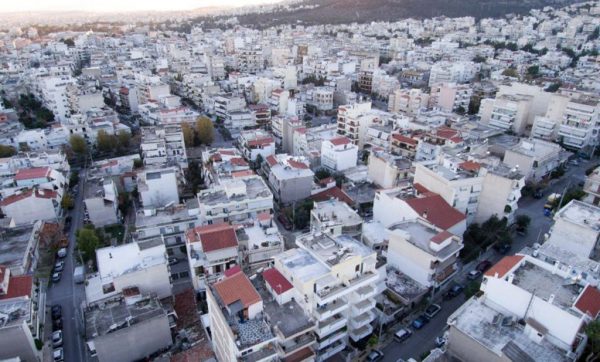
The recent heatwave of 2021 in Greece broke every previous record for several indicators, according to a study by the National Observatory of Athens (EAA).
According to Dr. Dimitra Founta, Research Director of the Institute of Environment and Sustainable Development (IEPVA) of the Observatory, in an article in the magazine “Cosmos” of the Observatory, the heat that hit Greece from late July to the first week of August was one of the strongest and largest in recent decades and was “certainly comparable to the historic heat waves of 1987 and 2007 that have been etched in our memory. The special characteristics and the rarity of this heatwave can be highlighted through the historical climatic archive of EAA which dates from the 19th century and is the only historical source of information about the climate in our region, on a century scale “.
From the comparison with all the heat waves from 1890 until today, based on data from the historic station of the National Observatory in Thissio, this year’s heat wave presented:
– The longest heat wave ever recorded at the historic EAA station (10 days), with heatwaves 8-16 / 8/1945, 19-27 / 7/2007 and 8-16 / 7/2012 following, with nine days duration each.
– The highest value of minimum (night) temperature ever recorded at the historic station of the National Observatory, equal to 31.6 0C (03/08/2021), with second and third in a row the temperature of 31.2 0C (6/7 / 2000) and 31.1 0C (25/8/1958) respectively.
– The highest value of average minimum temperature during the whole episode recorded in heat, equal to 29.4 0C.
– The highest value of average daily temperature (24 hour temperature) ever recorded at the historic station of the National Observatory, equal to 36.5 0C (03/08/2021), with a second temperature of 36.4 0C on 26/6/2007 .
– The second highest value of maximum daily temperature ever recorded at the historic station of the National Observatory, equal to 43.9 0C (03/08/2021), with the absolute record remaining at the temperature of 44.8 0C recorded during the heat wave of June 2007 (26/6/2007).
– The highest value of cumulative heat (excess degrees Celsius cumulatively for the entire duration of the heat wave, in relation to a threshold value), equal to 40.3 0C with respect to the average temperature of 24 hours and equal to 33.7 0C with respect to the minimum (night) temperature.
In other parts of mainland Greece there were much higher temperatures (up to 47 0C) also breaking historical records, according to the network of meteorological stations of the meteo service of the National Observatory and the National Meteorological Service.
In conclusion, as Ms. Founta points out, the long duration, the high temperatures during the night, as well as the total cumulative heat (combination of intensity and duration) were the main characteristics of this year’s heat. Of particular interest is the difference in the night temperatures of the latter, in relation to the historical heat of 1987, when the night temperatures were on average 2 0C lower.
Shee also points out that although the phenomenon of a heatwave is widely understood as a prolonged period of extreme heat, there is no commonly accepted definition in the international literature of what constitutes a “prolonged period” and especially what constitutes “excessive heat”. The minimum duration of three days seems to have prevailed in the literature and to have been adopted by most meteorological services. The temperature threshold above which a heat wave is defined varies from region to region. A common approach is to use maximum percentiles (90th or 95th) of the maximum daily temperature distribution, representing the local climate of an area, while often using a combination of maximum and minimum (night) temperature thresholds. The temperature of 37 C corresponds to the 95th percentile of the distribution of the maximum daily temperature in the summer at the station of the National Observatory, for the reference period 1971-2000 “.
Latest News

Capital Link Forum Highlights Greece’s Economic Resurgence; Honors BoG Gov Stournaras
Capital Link Hellenic Leadership Award recipient, Bank of Greece Gov. Yannis Stournaras, an ex-FinMin, was lauded for his pivotal role during Greece’s economic recovery

Tourist Spending in Greece Up by 14%, Visa Card Analysis Shows
Greece’s capital Athens emerged as the most popular destination, recording a 17% increase in transactions with Visa cards, surpassing even the cosmopolitan island of Mykonos.

Inflation in Greece Unchanged at 2.4% in Nov. 2024
The general consumer price index (CPI) posted a 0.4% decrease in November compared to the previous month

2024 Christmas Holidays: Extended Shop Hours Schedule
The 2024 Christmas Holidays extended shop hours schedule commences on Thursday, December 12 and runs until the end of the year.

ELSTAT: Seasonally Adjusted Unemployment Down in October
The number of employed individuals reached 4,284,694, an increase of 67,723 compared to October 2023 (+1.6%) and 22,002 compared to September 2024 (+0.5%).

Greek PM’s Chief Economic Adviser Resigns
In the post on his Facebook page, Patelis did not disclose the reasons that led him to step down.

“Masdar Invests in the people of Greece and in the vision of TERNA ENERGY”
Four messages from the CEO of Masdar, the Arab renewable energy giant, after its acquisition of 70% of TERNA ENERGY

Lloyd’s List Greek Shipping Awards 2024: Honors for leading companies and personalities in the Greek shipping sector
20 awards presented at the 21st annual Lloyd's List Greek Shipping Awards

Syria’s Bashar al-Assad, His family Granted Asylum by Russia
Reuters also reported that a deal has been struck to ensure the safety of Russian military bases in the war-ravaged country

Greece to Introduce Artificial Intelligence into Its Education System
Currently, Greece is taking its first steps to bring AI into classrooms through the AI4edu program, which is being co-funded by the European Union















![Χειμερινή εξοχική κατοικία: Οι Ελληνες γυρνούν την πλάτη παρά την πτώση των τιμών [γραφήματα]](https://www.ot.gr/wp-content/uploads/2024/12/Capture-19-90x90.jpg)

























 Αριθμός Πιστοποίησης Μ.Η.Τ.232433
Αριθμός Πιστοποίησης Μ.Η.Τ.232433